To Friend or Not to Friend? — Friending for Grownups with Dr. Christine Chang
Did you know: 70% of Americans do not find it “easy” to make friends? But why exactly does it feel like such a herculean task to make friends, especially as we get older? From reduced stress levels to improved life satisfaction, countless studies have recounted a plethora of benefits to having strong relationships and a bustling social network, yet the question remains — how do I get these friends? How do I build these connections?
According to the 2021 American Perspectives Survey, 49% of Americans stated they had 3 or less close friends, with 12% of individuals self-reporting that they had no close friends at all. To take a stab at this friendship issue, we partnered with Dr. Christine Chang, PhD last August to host “Friending for Grownups”. One of our most popular events of 2022, Dr. Chang led attendees through a variety of introspective exercises, activities, and discussions to not only explore the practice of connecting with others, but to also become familiar with the common challenges that exist inherently within adult friendships. Attendees left with practical tips for friending and a framework on how to apply friending techniques learned in the workshop to their own lives.
Julia Yu, TAP-SF board member, sat down with Dr. Chang to learn more about the ‘why’ behind why it’s so hard for adults to make friends. A licensed clinical psychologist, Dr. Chang shares insights into the mental health conversation as it relates to the Asian-American community, the importance of holistic care, and leans into her expertise to provide tips for cultivating healthy relationships and of course, tips for adults of all ages on how to make the friends we want!
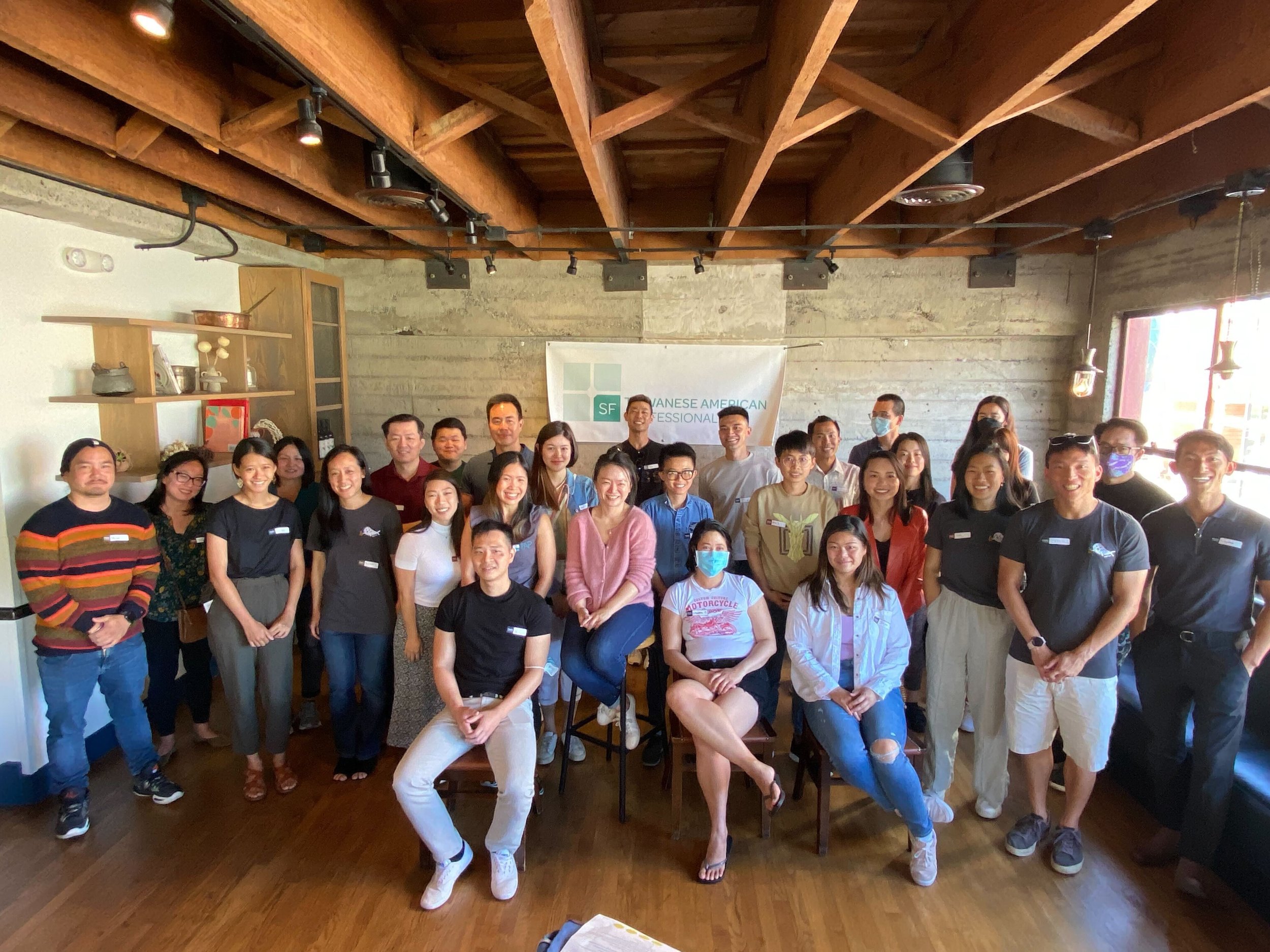
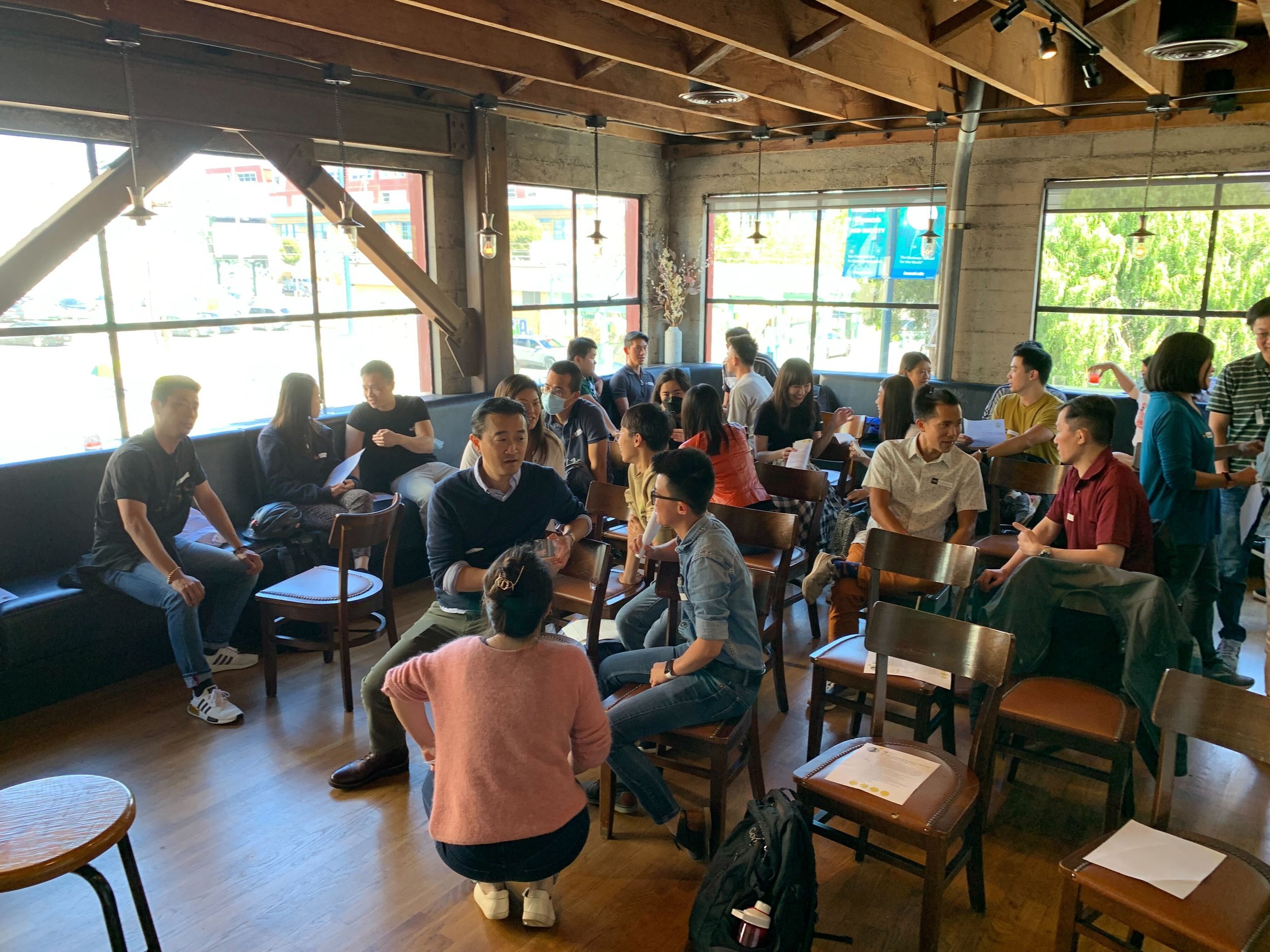
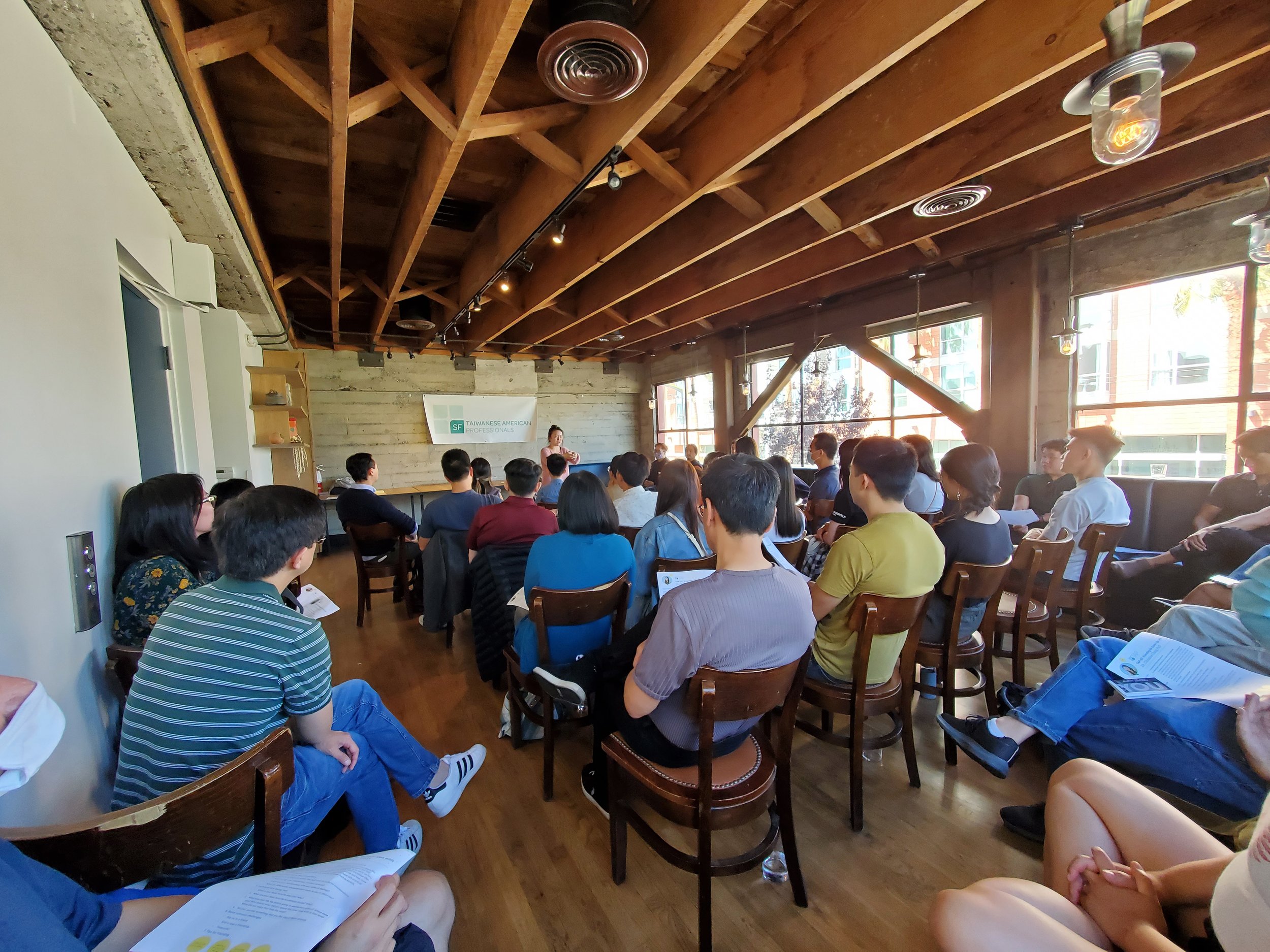
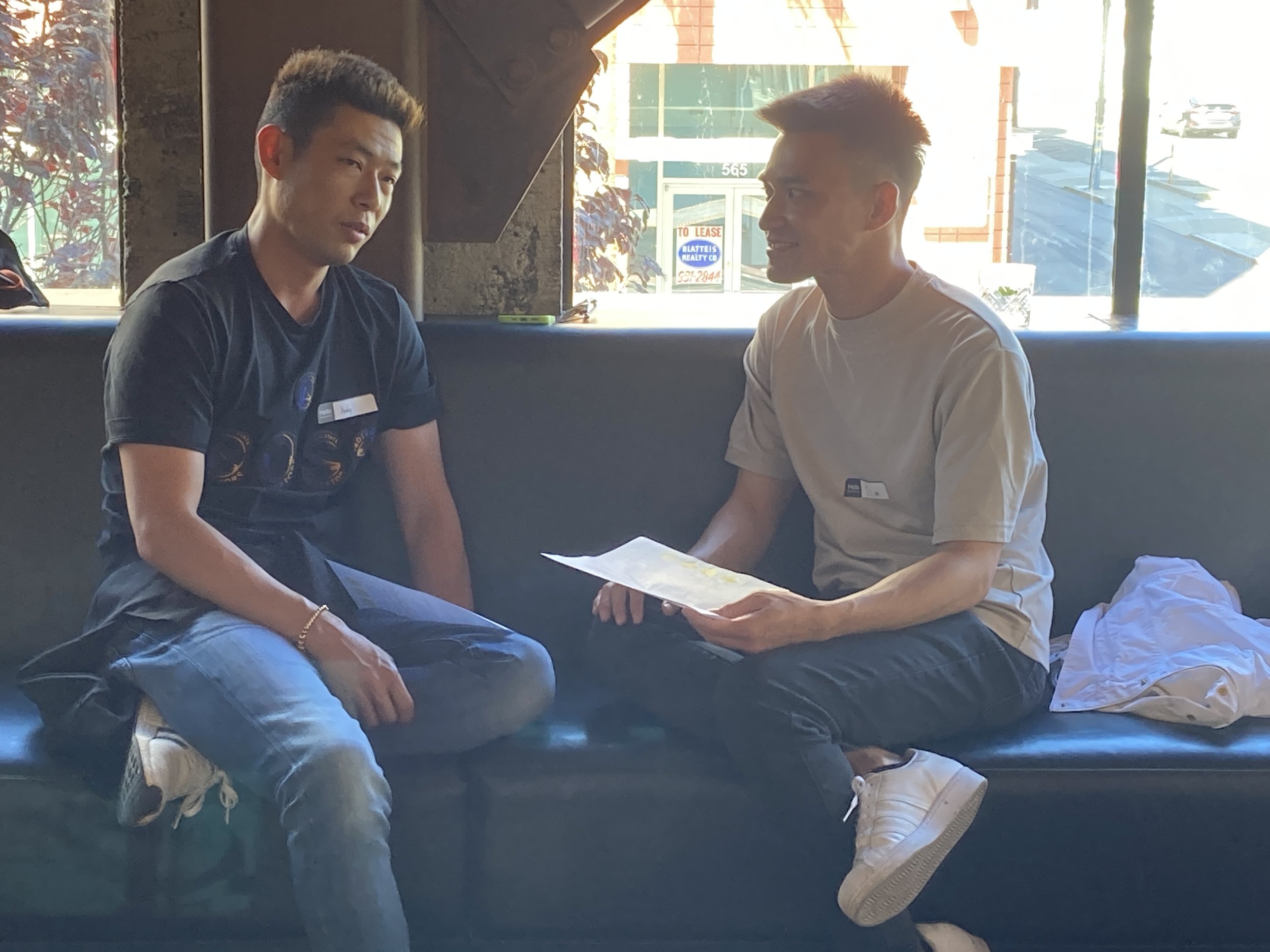
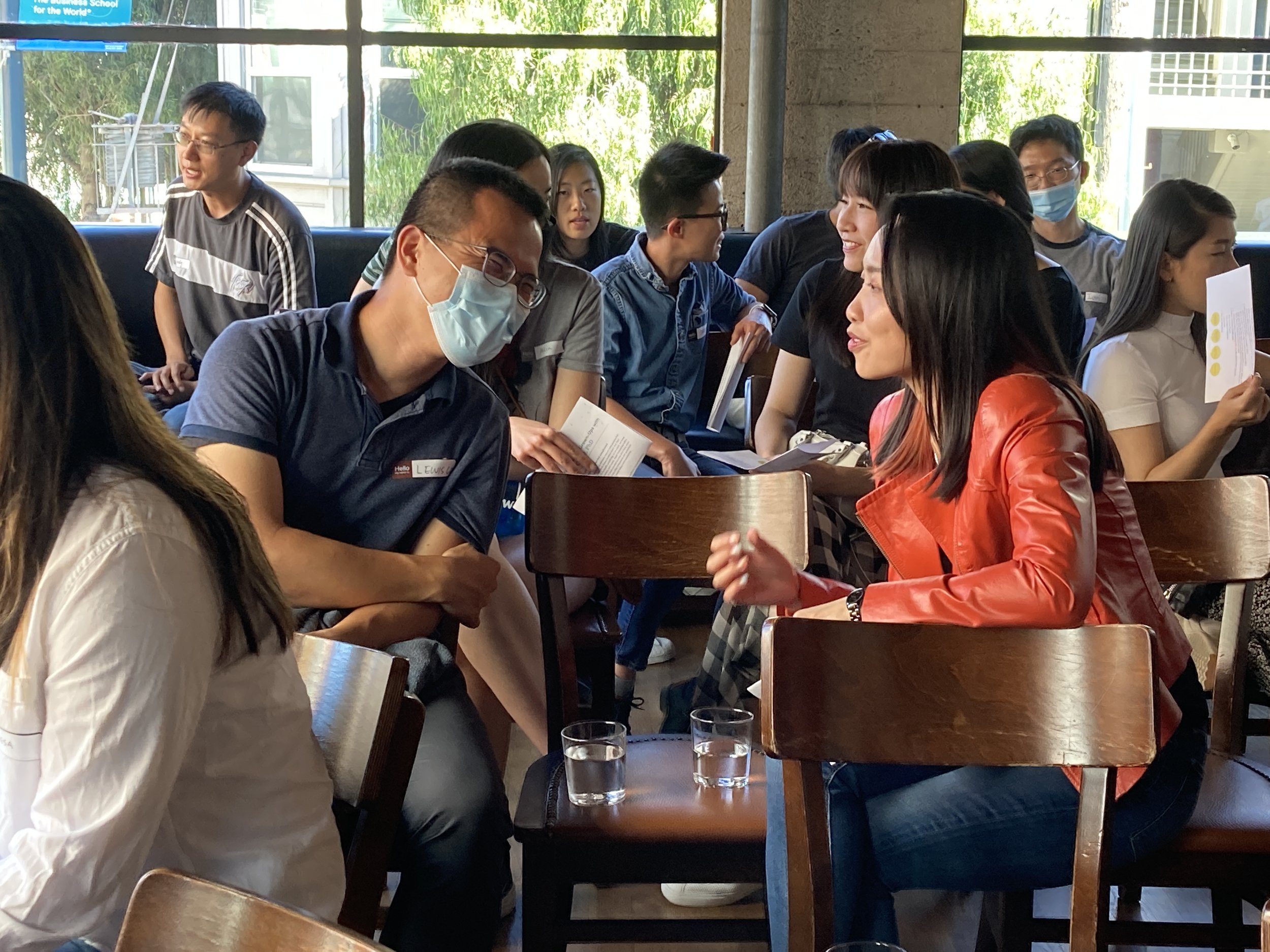
*This interview was conducted in September 2022, and has been edited for length and clarity.
Julia (TAP-SF): Hi Christine, thank you so much for being here. I’d love to start off with your background and life story so we can get to know each other a little more. You’re a therapist, and in the Asian American community, that’s a less popular profession compared to other professions. I’m curious if you could tell me how you landed where you are right now?
Christine Chang, PhD: Yes, of course. I was born and raised in Taipei, Taiwan. I finished college in Taiwan and worked there for two years before coming to the states. I did an internship at Stanford University, which brought me to the SF Bay Area and then proceeded to do my postdoc at UC Berkeley. I ended up staying and working at UC Berkeley for 6 years until I decided to leave last year. I currently live in Emeryville with my cat, Sailor.
Julia (TAP-SF): When did you become interested in the field of mental health and psychotherapy? Was it when you started studying at UC Berkeley, or before that?
Christine Chang, PhD: I studied sociology in my undergrad. Originally I wanted to become a researcher because I was interested in research surrounding mental illness, stigma, and culture. I wanted to examine how all of these concepts intertwined. Immediately after college, I worked as a counselor at a high school. I realized that one thing that brought me life was the interactions I had with people. When I worked with students at that time and when I worked with my clients now, I feel a sense of energy and that’s what I really enjoy and like.
I decided to get a PhD — in my PhD program, you have both clinical training and research training, and I wanted to explore both options more. Over the years, I just couldn’t resist the fact that I liked clinical practice much more than being a researcher. Research is important work, but I felt that I could offer the best of myself in a clinical setting. When I work with clients, I am present with their presence, and that makes me want to grow and improve myself as well.
Julia (TAP-SF): That’s really amazing. It’s so fascinating when we gain experiences that influence a pivot in either our professional or personal lives. I’m glad you were able to find your niche!
You mentioned your early interest in mental illness and culture, and also growing up in Taiwan before immigrating to the states to pursue your PhD. In what ways does your background and Taiwanese upbringing affect your therapy approach? How do you leverage your background when practicing culturally-informed care with your clients?
Christine Chang, PhD: There are two things for me with this question. First, I think Taiwan has its own unique historical and geological position, heavily influenced by big powers such as China, Japan, and the US. The Taiwanese experience is unique. Secondly, to me, identity is not just a label or a check-box; identity shifts over the years. At first, I viewed myself more as an immigrant and now, I identify more as a Taiwanese American.
These two things being said, in my clinical practice, I go in with this understanding because of my lived experiences as a Taiwanese and as a Taiwanese American here in the Bay Area. I go in with a lot of curiosity with my clients. What is it like for them? I know what it’s like for me, growing up, with my parents a certain way, but what about you? I aim to make room for my clients to explore, even though I have the understanding and knowledge of our culture. I’m curious to know, what are their experiences? What do they feel? What do they think? Sometimes, I want to offer a new lens leveraging my background and identity as well.
What this understanding offers is also a sense of safety. As a therapist, I want to be careful and ask myself “is my understanding stereotyped”? I want to make sure that I make room for my clients to explore what their experiences mean to them, without stereotyping what their experiences might be. That cultural understanding to me is offering the safety for my client to explore that.
Julia (TAP-SF): It’s so important for clients to have that safe space so that they can explore for themselves what certain experiences mean to them.
Christine Chang, PhD: Definitely.
Julia (TAP-SF): Well, as a professional in the mental health field, I’m sure you know that mental health is a growing topic nowadays and people are realizing the need for a more holistic approach to care. In your opinion, what’s the importance of mental health in today’s environment?
Christine Chang, PhD: Mental health is important because it’s people’s calling to be human. We have that yearning to be seen, viewed, and perceived as human beings. Not everything is, or should be, about just my physical body, or just my productivity. I see the importance of mental health as a cry out loud — we want to be human! Where’s the humanity and humanness? That’s the desire in today’s environment and this is the trend that I see us going in.
Julia (TAP-SF): Absolutely. It’s great to hear your predictions for the future of mental health, as it sounds like this is just going to allow for more space to hold conversations around mental health and provide more community for holistic care practice.
Despite the growing conversations around mental health, there has been (and continues to be) a longstanding stigma surrounding mental health care and therapy in the Asian community. How is this narrative changing, and what can we do to help destigmatize this topic?
Christine Chang, PhD: The stigma is real, and comes from sources that are serious and traumatic. Not long ago, the government could deem someone to have a mental illness, and then make you disappear! It wasn’t really about whether you had a mental illness. It was more you're different and deviant — so now you are excluded and even erased. This stigma tells me that there’s fear. There is fear around mental health care, around mental illness, about sharing what’s going on in my mind and in my heart. And that fear comes from a collective trauma.
I think what we can do is give more permission. Allow people to share their fears. Personally, I am an honest and transparent person, so I also want to share and model my own experience with others. Whether we are therapists, or clients, I want everyone to foster and model the permission to share your own experiences.
Julia (TAP-SF): That’s great advice. I feel like I need to act on this more myself, because you’re absolutely right — we can only start destigmatizing this topic if we have more people engaged in the conversation.
Let’s shift to the event. Making friends as an adult! Do you feel that this is a common issue? Why do you think that most adults generally have a harder time making genuine friendships as we age?
Christine Chang, PhD: Adult life is complex and complicated, so that makes adult friendships more complicated too, in the sense that roles and responsibilities become intertwined with these friendships. As a kid, my friends are just my classmates who are sitting next to me, but as an adult, I’m thinking ‘I actually need to be friends with my kids’ parents because our kids like each other’. Or, I’m thinking ‘Hey I need to have some friends or people that I can trust at the workplace’. There’s different needs and responsibilities that get intertwined with making meaningful connections. This makes it hard as adults, because there’s a lot of stress and pressure. We also will feel lonely and want to make friends, but making friends really takes some heart. It’s sad to say, but for some people, it can feel like a luxury to make friends as adults. It’s hard.
Julia (TAP-SF): That’s definitely tricky, because it seems like so many variables need to align in order for these friendships to emerge! It’s like you almost need the right time and the right moment in order to make any meaningful connections as adults. And of course, people need time to make friends and build that relationship, yet as adults, we don’t have a lot of extra time!
Christine Chang, PhD: And then there’s a readiness factor too. Like, am I ready to make friends? How many friends am I ready to make or connect with at this time? What does a meaningful connection mean to me at this point of my life? Because making friends takes a lot of mental energy and practical concerns that we don’t always have.
Julia (TAP-SF): Man, adulting is hard! Well that’s not news to anyone, I’m sure, but I’m glad that we can affirm, from multiple angles, why being an adult is so difficult.
So we can have these relationships, but what we really want are healthy relationships. I’d love to hear from you, what are some qualities that you feel contribute to healthy relationships, whether that be friendships or otherwise? Is there anything that you can share to help those who are either struggling to make deep connections or even those who struggle to retain connections?
Christine Chang, PhD: There’s a few things that are important to a healthy relationship. The first is definitely communication. Communication in the sense of allowing for self-disclosure from both parties, and communicating in a way that two people can allow for different needs and values to be expressed in the relationship.
There’s also the element of curiosity. In a relationship, we need to make room for curiosity before judgment given that as adults, we have different experiences that may have shaped us to be who we are presently. Give yourself space to be curious in a relationship before judging someone.
And finally, we need to be connected with reality. That’s a big thing in my opinion. If you’re not happy with a particular friend, or if you are unhappy in a relationship, it’s important to acknowledge your own feelings and take care of yourself. Recognize that unhappiness; allow that reality to sink in and tell yourself that I need to do something to take control of my own happiness in this situation.
Julia (TAP-SF): That last point is a really good one that I’ve not thought about before. That almost seems like the most important one — you should be taking charge of your own experience in these friendships and relationships, because the minute that you don’t, there’s great potential for the quality of the relationship to decline.
I want to close off with one last question, and this will be more for those who weren't able to attend your event. What are the top 3 takeaways about making friends as an adult that you’d like our community to walk away with?
Christine Chang, PhD: There are three takeaways I’d like to share.
1) Listen with spaciousness. Active listening is important so let’s make the space to listen to others in these friendships, and vice versa.
2) Share with grace, not only for yourself, but also for others.
3) Be creative and experimental. Not everyone you meet will be a good friend candidate and know that as adults, you can also get creative with the way you build your friendships.
Julia (TAP-SF): That’s amazing, and I so appreciate you sharing your expertise today and providing these tangible tidbits that our audience can walk away with. Thank you so much, Christine.
Christine Chang, PhD: Thank you to TAP-SF for having me.
About Dr. Christine Chang, PhD:
Dr. Christine Chang is a licensed psychologist in the SF Bay Area. Born and raised in Taiwan, she moved to the US and continued her training in mental health research and clinical practice. She has extensive experience working with individuals dealing with anxiety, stress, grief and loss, relationship difficulties, attachment trauma, existential/spiritual issues, and minority/immigrant experiences. She provides individual and couples therapy, and is bilingual in Mandarin and English.
You can follow her on instagram @christinechangphd.

